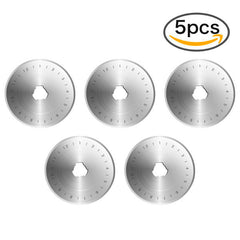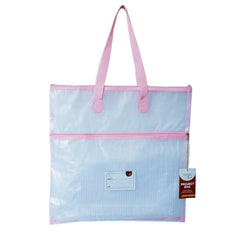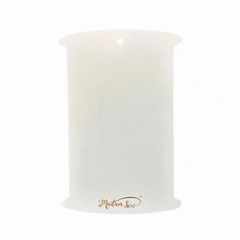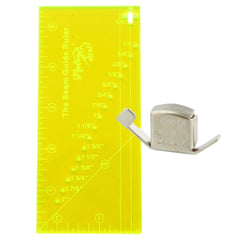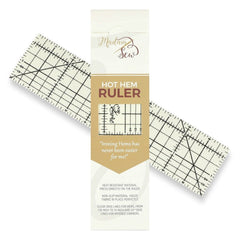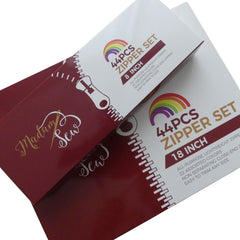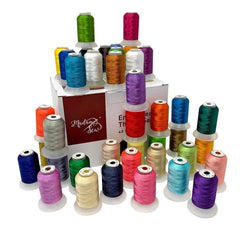Make These Soft Fabric Blocks for Your Grandbaby
Sewing Love into Every Stitch
Becoming a grandparent is one of life’s sweetest joys—and what better way to celebrate than by sewing something special for your grandbaby? Whether you’re a seasoned sewist or just dusting off your machine, fabric blocks are a delightful and beginner-friendly project that combines creativity, love, and a touch of nostalgia. These soft, colorful baby blocks are perfect for tummy time, sensory play, and even nursery decor. You can also make them as a baby shower gift or a handmade gift for a newborn.
Make these blocks in any size you want and as many as you want. Use cotton fabric scraps and add some tags for the baby or toddler to fiddle with. I got some little fabric swatches from Fableism that are 100% cotton, very soft and oh so pretty. How I love this brand! We met the family at the H&H Trade Fair in Chicago in May of this year as they had their booth next to ours. Look in their stockist list on the website to see if your favorite fabric store has them!
In this tutorial, I’ll guide you step-by-step through making heirloom-quality soft blocks, plus share links to more baby sewing projects that make beautiful, handmade gifts. Read on!
Supplies
You need six fabric squares of the same size out of a fabric that is baby-proof. Take a natural fibre and be sure to wash the fabrics before you start sewing. The larger the squares, the larger your cubes will be. I’m using a quarter inch seam allowance for the sewing. The blocks in this tutorial are made of precut squares from fabric samples I got at a trade fair. They are 5 by 5 inches and are already cut with pinking shears to prevent unraveling. My finished block is 4 ½ by 4 ½ inches.
For the filling you can use any stuffing you like, fibrefill or polyfill are good options. If you want somewhat heavier blocks, you could also use fabric scraps cut into tiny pieces as shown in this knee pad tutorial.
As for the tools, you need scissors to cut fabrics, a ruler and temporary fabric marker to mark the seams, pins to pin the different pieces together, a sewing machine with needle, spool and a bobbin of matching thread, a hot iron and ironing board or wool mat. I used the Madam Sew seam guide ruler to mark the corners.
Step-by-step Instructions
Take the six squares and arrange them in a cross shape like you see in the image below. Think about how you want your fabrics arranged.
First pin the two squares that are at the bottom of the leg of the cross together, right sides facing. You will have to sew one seam on the side where the fabric pieces were touching in the cross shape. Use a quarter inch seam allowance when sewing and don’t sew from one corner to the other (all the way to the edge). You have to stay a quarter inch from both sides. You can use your needle plate to guide you or mark the squares with a line or little dots or crosses in the corners. I used the Madam Sew Seam Guide Ruler to mark the corners. It has a little cross that you can use to mark, it sits a quarter inch from both sides. A heat erasable fabric marking pen is handy to position these marks accurately.
Then sew the other two pieces of the vertical part of the cross together, right sides facing and make sure you sew the correct side and stay a quarter inch away from the edge.
Next, sew the two pairs together so you have a row of four squares. Again, use a quarter inch seam allowance and don’t forget to start and stop at a quarter inch from the edge.
Press all the seams open.
Now it is time to add the two other squares. Pin them on the second square from the top of the long strip, right sides facing, and use the previous seams as a guide, sewing from one seam to the other. Press the seams open.
Now it is time to shape the cube and make it a 3D project. Start with the two sides at the top of the cross shape. Don’t forget to mark the quarter inch corner so you don’t stitch all the way to the end.
Then sew the two seams at the opposite side.
Now there are three seams left to sew. Sew two of them and start the third but leave a 1 ½ inch gap on the third seam to turn the cube right sides out. This is the turning hole. Back stitch at both ends of the gap. Cut off all the thread ends using thread snips.
Turn the cube right side out. Ease out the corners with a knitting needle, chopstick or the Madam Sew Magic Wand.
Break up the polyfill a bit before you start stuffing. Fill the cube through the turning hole. Don’t stuff the cube too much. It can make it lumpy.
Lastly, close the gap with a ladder stitch by hand. Bury the thread end in the cube.
This was the final step. The cube is ready now. Back to start to make a couple more!
From Your Hands to Their Heart
Creating handmade baby items is more than just crafting—it's a way to install a piece of your love in the everyday moments of a little one’s life. These fabric blocks are soft, safe, and made with love sewn into every seam. Whether you’re making your first or your fiftieth, each one is unique. Be sure to check out the baby sewing tutorials linked below for even more heartfelt inspiration and ideas.
Happy sewing, and may your stitches always hold strong!
An
Blogging for Madam Sew
Download the Free PDF Fabric Blocks Tutorial by Madam Sew here











